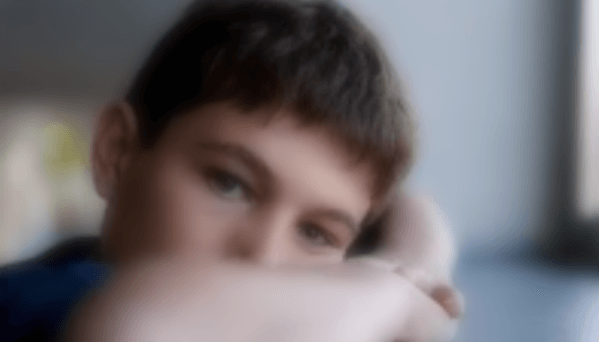The prevalence of anxiety in children under 12 is estimated to be between 15-20%. That means that around one in every six kids experiences diagnosable symptoms of anxiety. Many more children suffer from anxiety, but may not meet all of the criteria to qualify for a diagnosis.
To simply define anxiety, it is excessive worry, fear, nervousness, or apprehension. Some level of anxiety in children is normal. You may expect your child to be nervous before a big test or when moving to a new home. But, when the worrying and fear becomes constant and insistent, it can really take a toll on the wellbeing of your little one.
Let’s look at some of the different types of anxiety disorders that can affect children. Here are some of the most commonly identified disorder in kids under 12:
- General Anxiety Disorder (GAD): characterized by excessive worry about a variety of concerns, restlessness or difficulty relaxing, trouble concentrating, and the inability to control the worry
- Panic Disorder: characterized by the occurrence of two or more sudden or unprovoked anxiety attacks, followed by excessive worrying about having more attacks
- Separation Anxiety Disorder: characterized by excessive anxiety in situations away from home or a parent/caregiver, usually diagnosed in children ages 7-9
- Selective Mutism: characterized by a refusal to speak in situations where it is expected or necessary, such as school, interfering with normal social and academic development
- Social Anxiety Disorder: characterized by an intense fear of social interaction or social situations leading to withdrawal
- Specific Phobias: characterized by an irrational fear of a specific object or situation, such as storms, animals, blood, or heights, etc., and the child doesn’t recognize the fear as being irrational
Signs and Symptoms of Anxiety Disorders in Children
Untreated anxiety disorders can become chronic and cause other issues such as depression, substance abuse, and poor academic performance. If you’ve ever wondered about your child’s anxiety, there are few things to look out for, both physically and cognitively. While your child doesn’t have to exhibit all of the following symptoms, it’s always good to get the opinion of a professional.
Here are some emotional and cognitive symptoms to be on the lookout for:
- Obsessions with the past or future (including about topics such as death or illness)
- Withdrawal from friends and family
- Difficulty falling asleep, staying asleep, or nightmares
- Panic attacks
- Explosive outbursts or behavioral issues
Younger children can often have difficulty putting their feelings into words, so it is important to look for the physical symptoms of childhood anxiety:
- Frequent urination or bedwetting
- Upset stomach/Digestive issues
- Tightness in chest, back, or neck
- Elevated heart rate or fast respiration
- Insomnia
- Headaches or other unexplainable aches
- Changes in appetite
If you’ve noticed any of these signs of anxiety in your child, it can be difficult to tell if this is simply normal childhood behavior, or if there is a larger issue that needs addressing. Please reach out to a local counselor to assist with assessment and treatment of anxiety in children.
Is My Child’s Anxiety Normal? Or is it Something More Serious?
When examining the anxiety your child feels, focus your attention on four specific areas:
- Subject: What is your child worried about? Is it a normal worry that other children of this age have?
- Strength: How intense is your child’s fear or worry? Is it an excessive amount of distress for a child of this age?
- Effect: How much does it interfere with your child’s social, family, and academic life?
- Skills: Does your child have the ability to recover or cope with distress?
Some studies suggest that females are more likely than males to experience anxiety. Anxiety in kids also often occurs with other issues such as ADHD.
If you suspect that your child suffers from anxiety, you can help. From talking with a counselor or therapist, to mindfulness activities- a therapist trained in anxiety disorders and treatment can guide you to the right tools. Your counselor may encourage your involvement in aiding your child when working to overcome anxious distress.
How Can I Help My Child’s Anxiety
Your children are your top priority, and you want to do everything you can to give them the best life possible. There are ways to treat anxiety in children including talk therapy, medication, and mindfulness practices.
Remember that you don’t need to try to eliminate all of your child’s anxiety. A little bit of anxiety can be helpful to children because it pushes themselves to succeed. Instead, your role as a parent is to help your kids learn how to effectively manage anxiety, a skill that they will need now and throughout their entire life.
A good starting place is finding a therapist near you. These experts can offer guidance on what kind of anxiety your child is dealing with and which treatment plan could offer relief. If you have any concerns or questions about your child’s worry, it is time to ask for help. Our counselors serve Cary, Holly Springs, and the surrounding communities. Contact us at (919) 379-5788 or admin@counselingintegrity.com to discuss anxiety treatment options.

